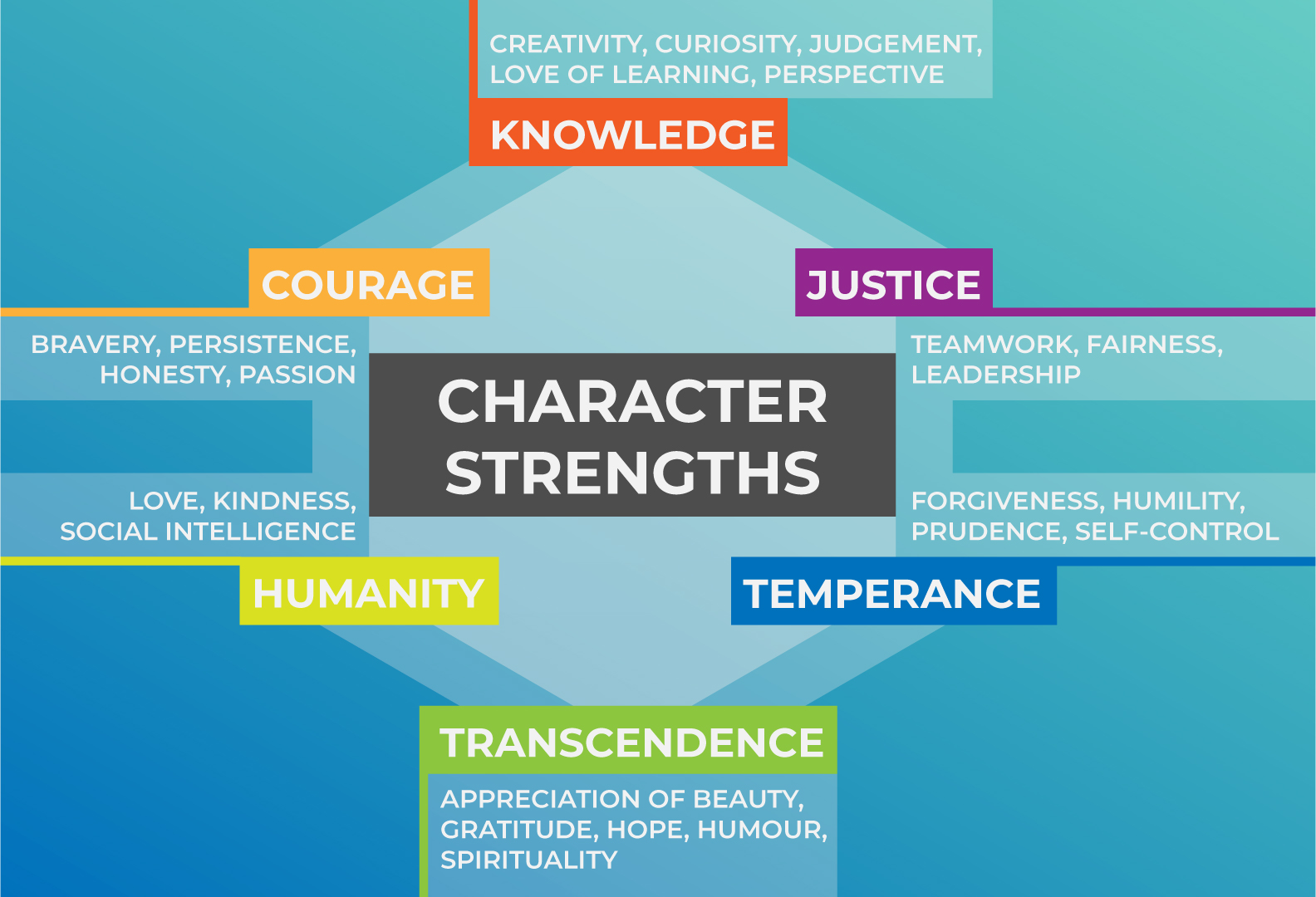
S Hermann and F Richter, Pixabay
Character is something we are all fascinated by. Whether it’s the Myers-Briggs test or the currently popular enneagrams, we’re always looking for ways to understand ourselves and others better. In positive psychology, we have a taxonomy of 24 character strengths, such as curiosity, kindness and persistence. I have the absolute joy of researching a field where my faith and science happily intertwine.
These character strengths really embrace the uniqueness of each individual and give Christians a beautiful language to encourage each other and to embrace our identity in Christ. Psychology can act as an active tool in practically developing character strengths. Today, I’d like to offer you some practical ways of developing 8 specific character strengths.

© Benjamin Hoare
Naturally, character strengths can be found all throughout the Bible. For example, Colossians 3:12-17 describes the behaviours and culture that followers of Christ need to inhabit. These five verses call us to be kind and to live with humility, to forgive and love one another. We’re called to live in unity with others and to show gratitude to God. This passage also emphasises wisdom and knowledge of God’s word, and finishes with the instruction to do things whole-heartedly for God.
Or in the language of character strengths, we’re called to show kindness, humility, forgiveness, love, teamwork, gratitude, wisdom and passion. As I write (briefly) on each one, I’d like to offer some tools from positive psychology that we can all use to help us step into this fully.
Kindness is all about doing things for other people, showing compassion and being generous. We can increase our levels of kindness simply by turning our thoughts into kind acts. A positive psychology tool here is simply ‘counting kindness’, which you have seen and acted out that day. Fredrikson’s ‘Broaden-and-Build’ theory suggests that just from becoming more aware and dwelling on kind acts, we will act more kindly, see it more in the world and become a kinder person as a result.
In verse 12, we are instructed to clothe ourselves with humility. Having researched humility myself, it is a personal love of mine. Humility is so often confused with modesty, but at its core humility is simply knowing yourself and recognising that your achievements do not elevate your worth. Although modesty can be a sub-type of humility, it is not the self-degrading talk that people associate with humility, but in-fact having a positive focus on others.
Paul emphasises the importance of forgiveness in verse 13, which is something that many struggle with. In fact forgiveness is often not a one-off, done-and-dusted, thing but something that needs to be continuously practiced for the same wrong-doing. We might think that we have forgiven someone, but when that person comes back into our lives or something reminds you of that wrong-doing, we find ourselves needing to forgive once again. There are countless sermons and advice on how to forgive someone, and in psychology this is also true! For a short challenge, take the time to consider the offender, appreciating their complexity, considering what their aim was in that moment, and looking at them through the eyes of God. For the psycho-babble term it’s known as compassion-focused reappraisal.
Love is placed above other virtues in the Bible, and this passage is no different. We are told ‘over all these virtues put on love’. For this, practice praying Numbers 6:24-26 over yourself, your close friends/family, an acquaintance, and someone you struggle with. This is a version of the famous Loving-Kindness meditation. Follow the passage and pray each line over your chosen person.
Unity is emphasised both in verse 14 and 15. It is crucial that we function as members of one body with others. One challenge is to actively encourage optimism about your group/church – in other words, do not grumble! Practice affirmation and encouragement in your communities, teams and your church as a whole. Consider how you might contribute more.
Gratitude is mentioned three times in this short passage. Known as a success story of positive psychology, focusing on increasing your gratitude actually improves our wellbeing! You may be aware of ‘gratitude diaries’, in which you record three things you are grateful for each day. Alternatively, you can spend time writing a ‘gratitude letter’ to someone you’d like to thank, and, if appropriate, deliver it to them and read it to them.
Verse 16 focuses on wisdom and pursuing a greater understanding of the word of God. This verse was difficult to choose a single strength for, as it really encompasses three: perspective, love of learning and judgement. So here I give two challenges. Firstly, identify a particular part of the Bible you’d like to know more of and make a commitment to diving more deeply into it. Secondly, when you find yourselves in a disagreement with others, take a neutral position and carefully consider all the sides.
Finally, we are told to do all things for God. This, in the language of character strengths, is known as zest or passion – doing things whole-heartedly. One method from psychology states that just by telling others of the good things that have happened, we increase the excitement around us. So here, I encourage you to actively tell others about the good things that God has done. Not only will this increase passion, but faith as well! Take time to recognise what passions God has given us and embrace them, living life all out for him.
These eight character strengths are a good starting point in trying to live out life as a Christian. Hopefully these ideas offer an interesting challenge to each of us and provide some useful tools to help us along the way.
![Rebecca Park - Books[1]](https://www.faraday.cam.ac.uk/wp-content/uploads/2020/02/rebecca-park-books1.jpg)
© Rebecca Park




